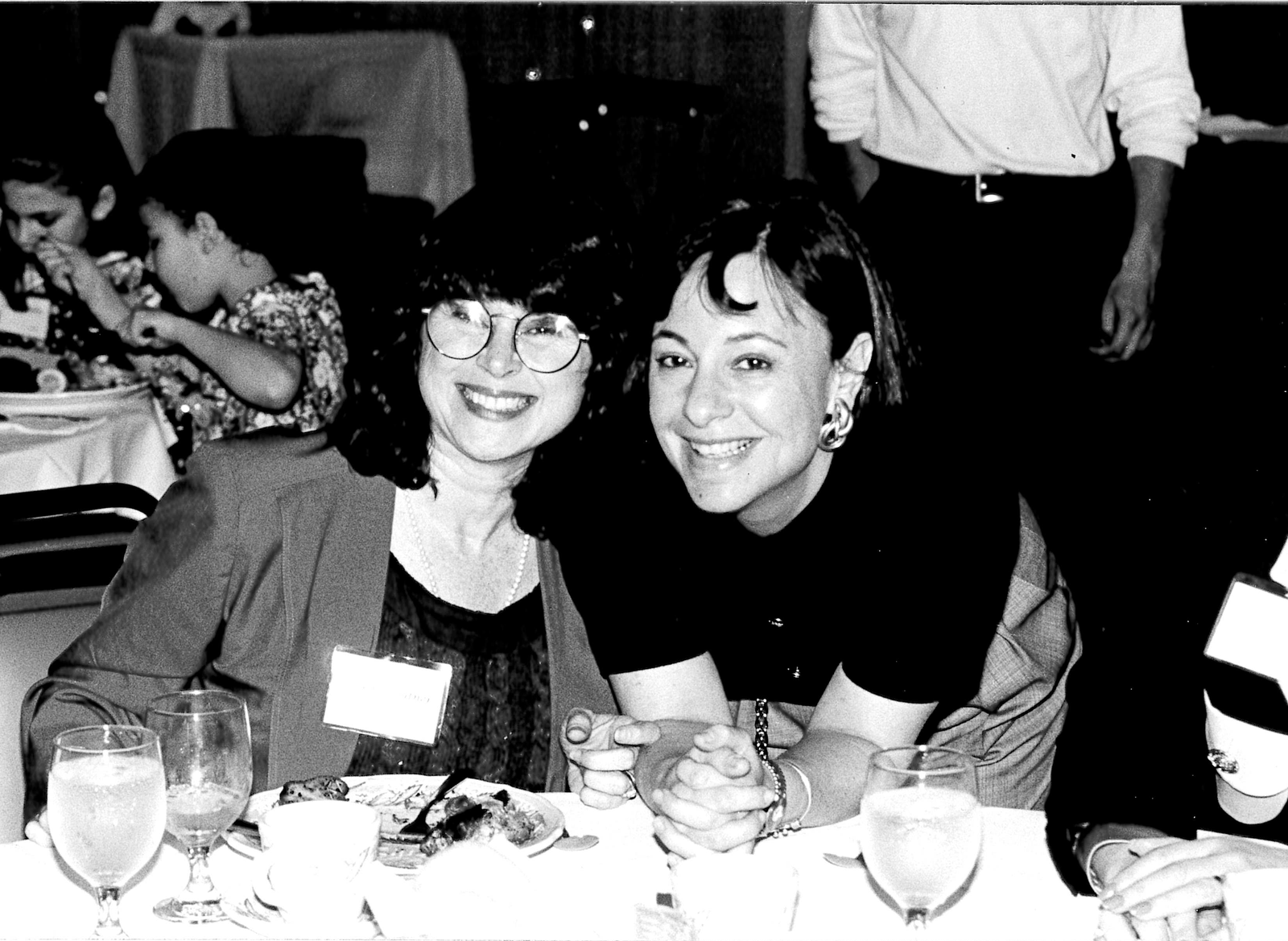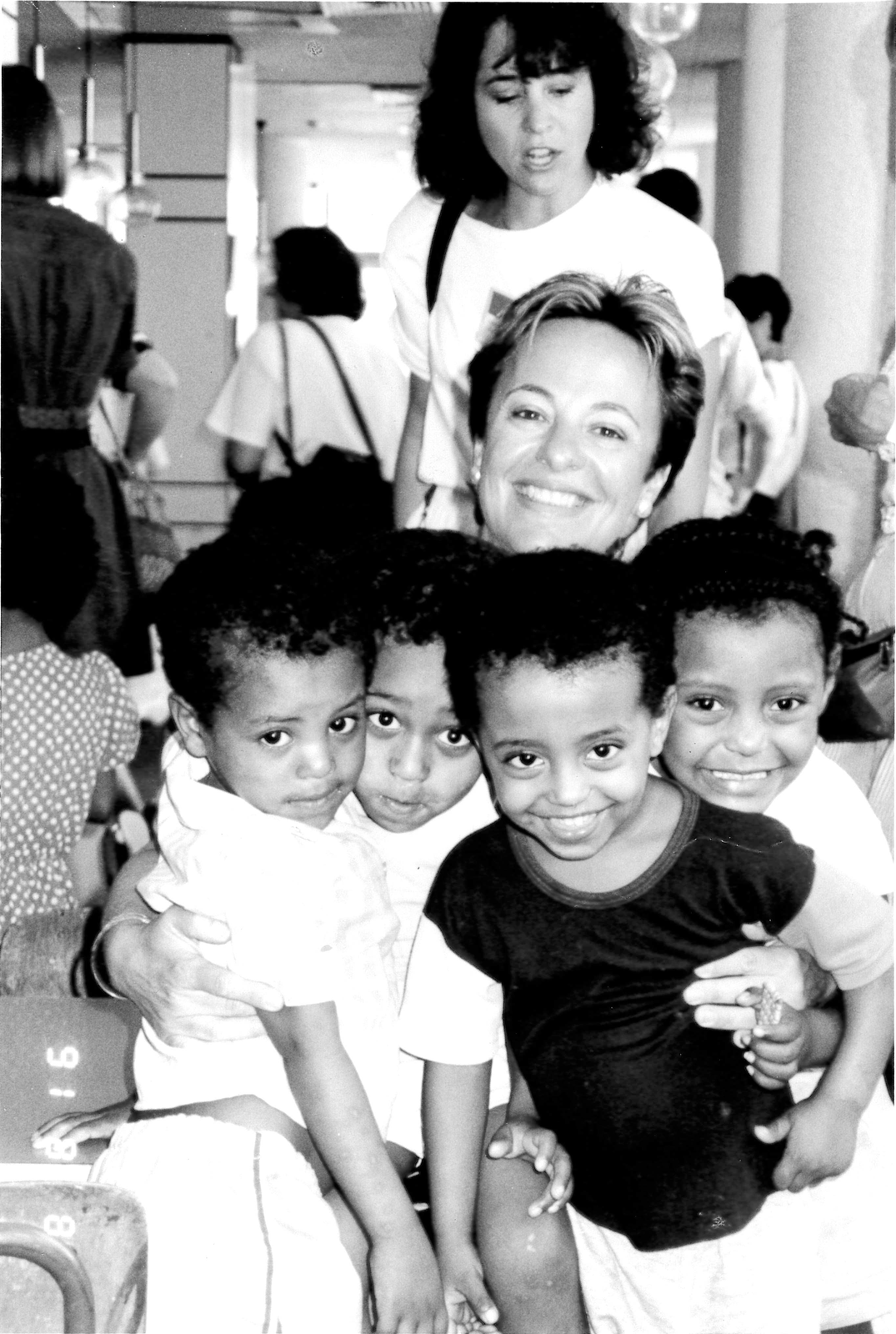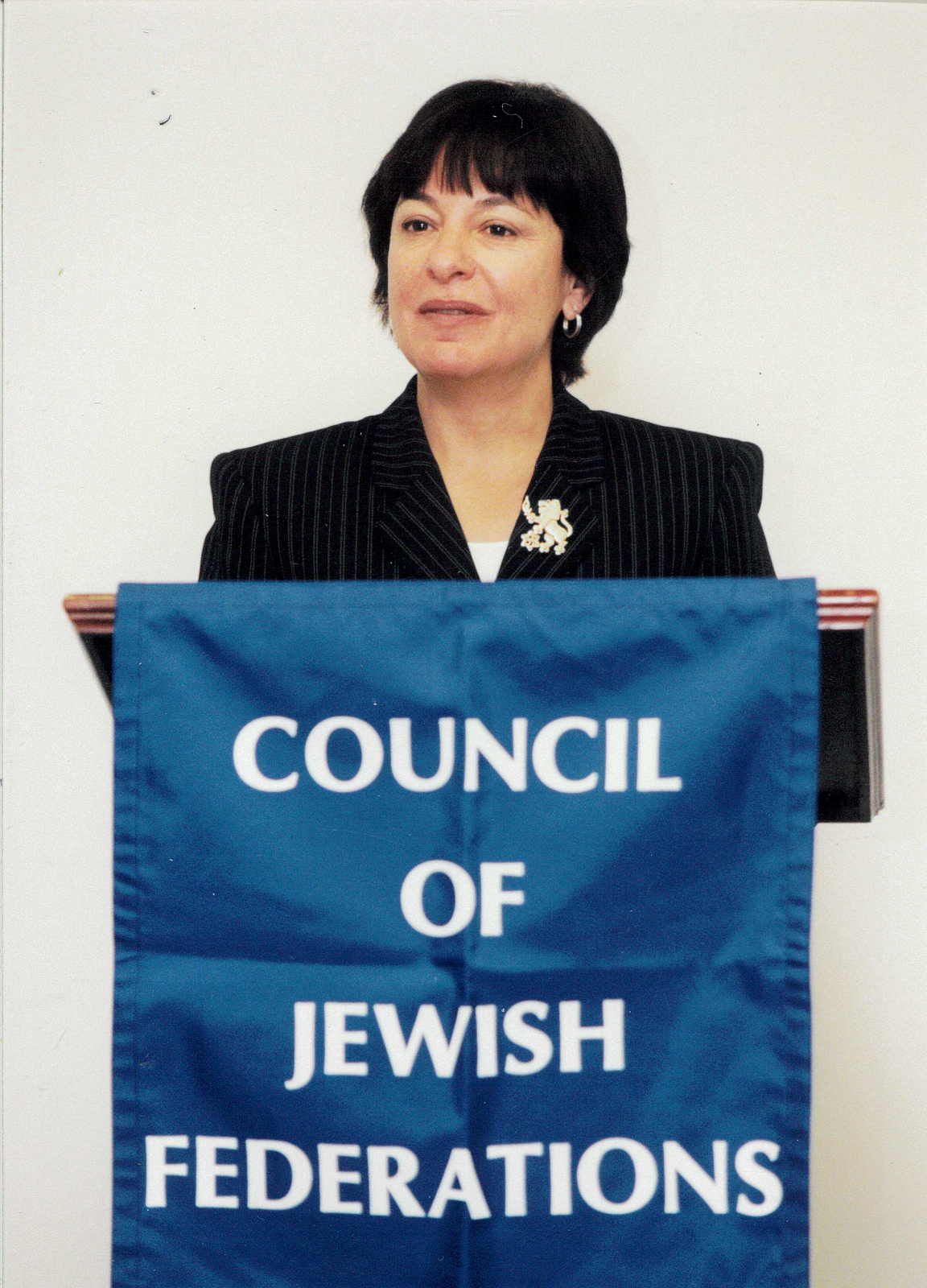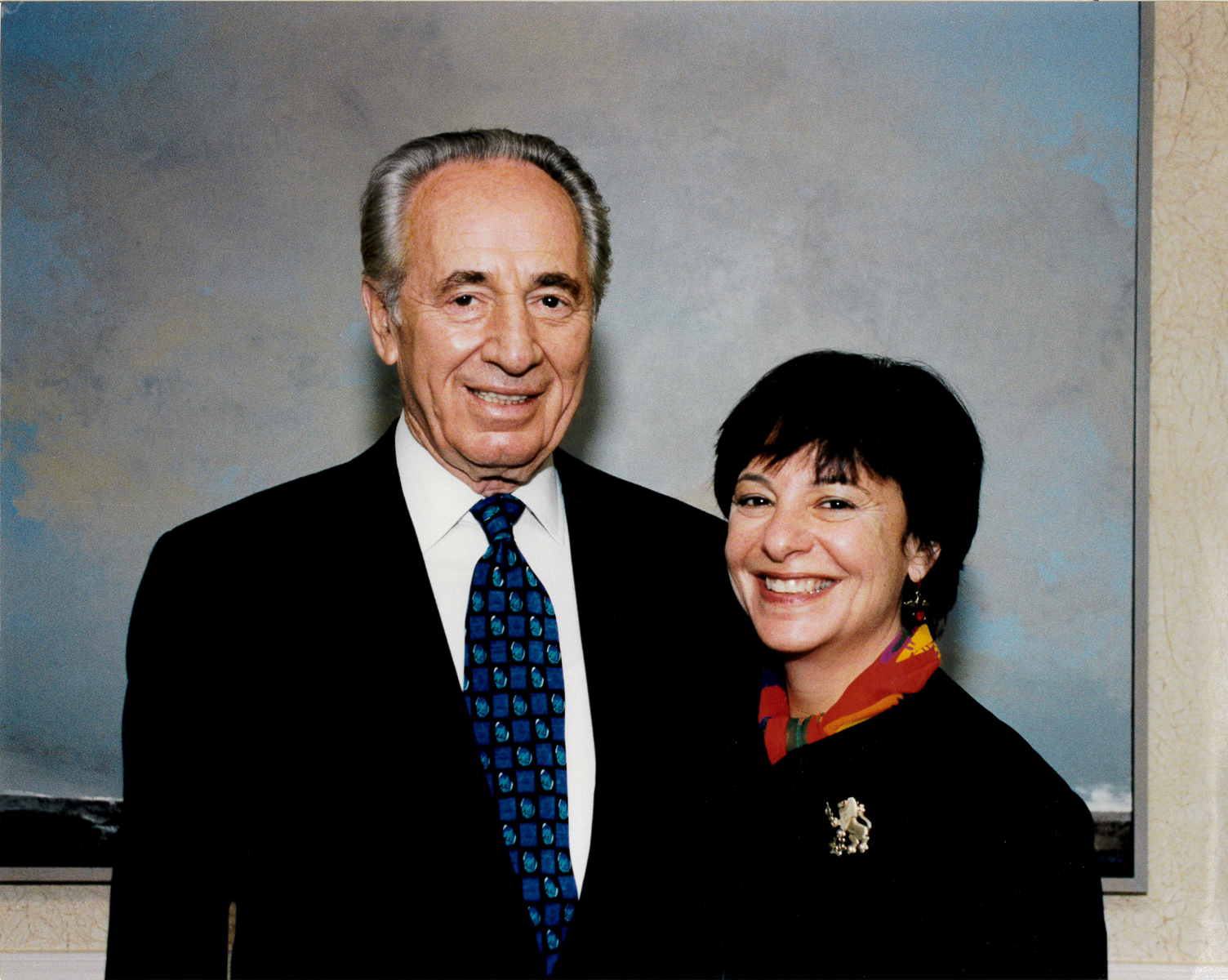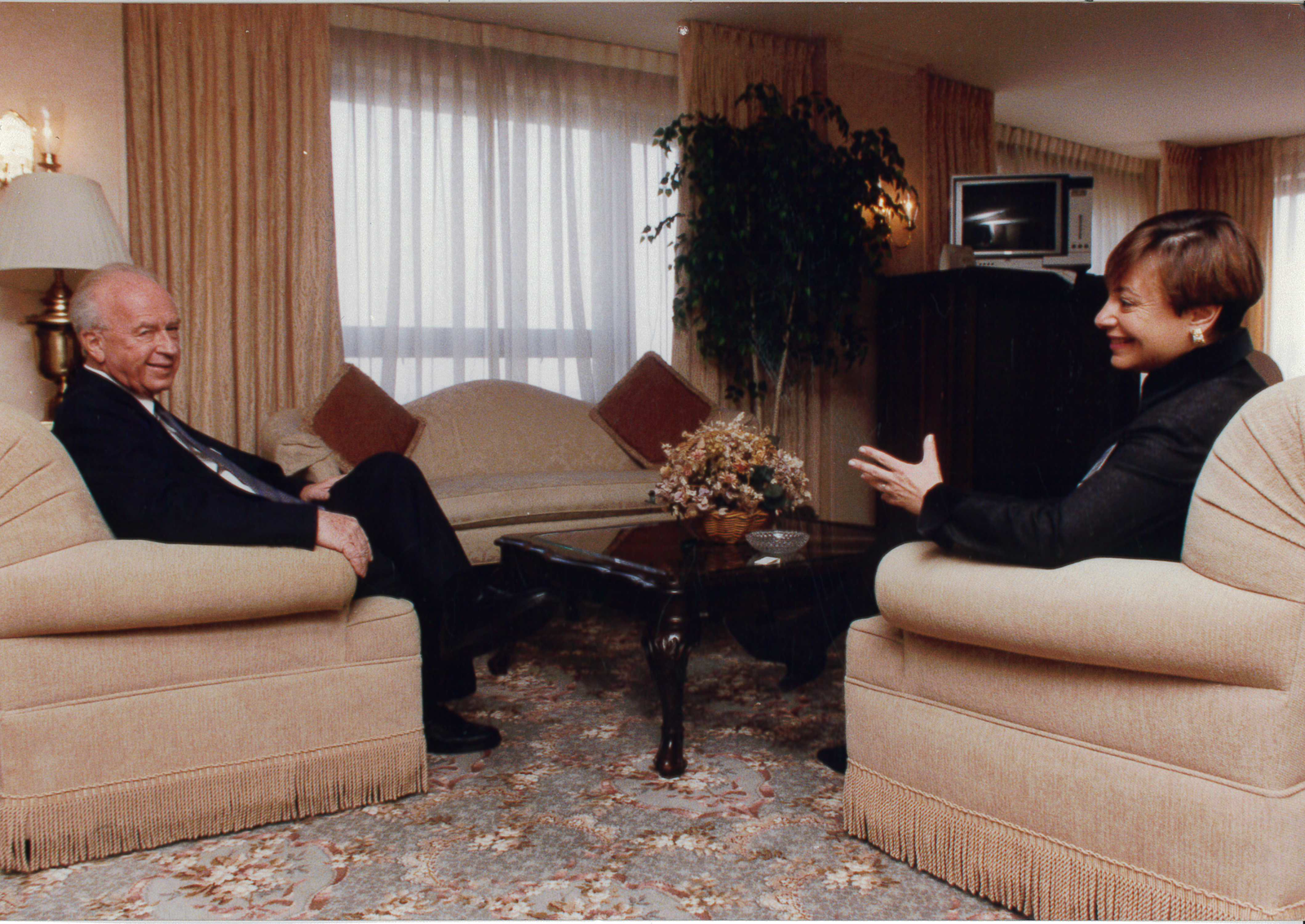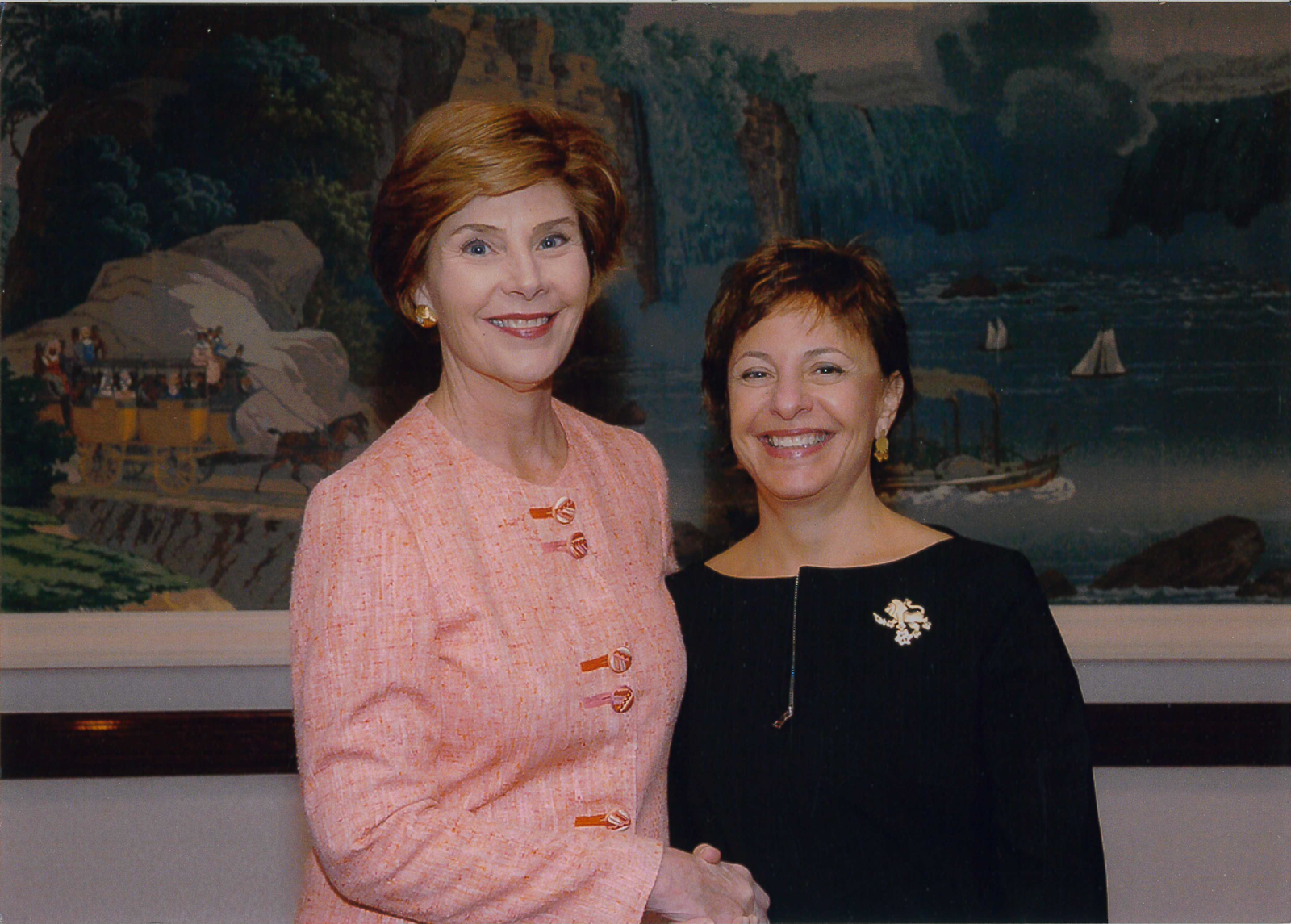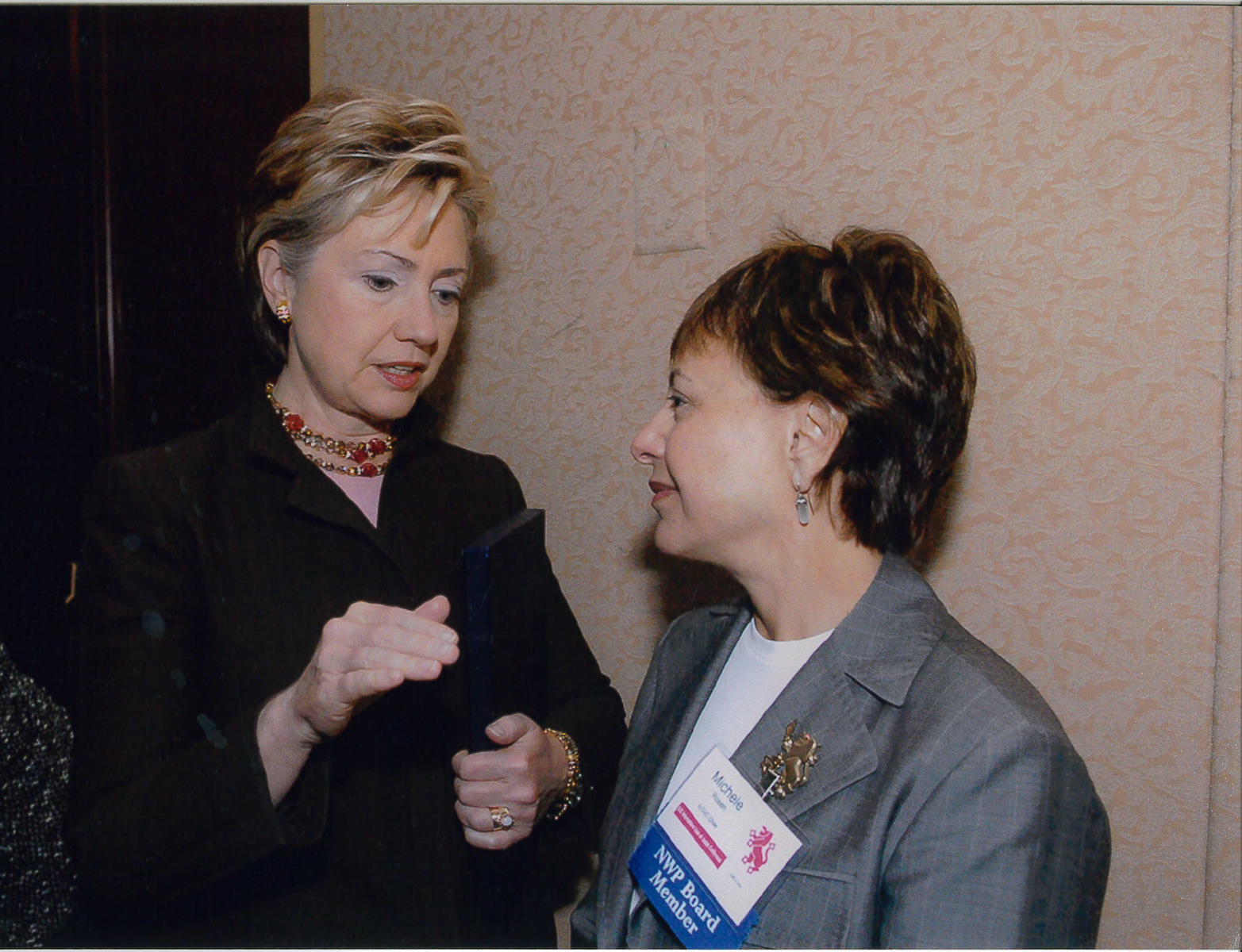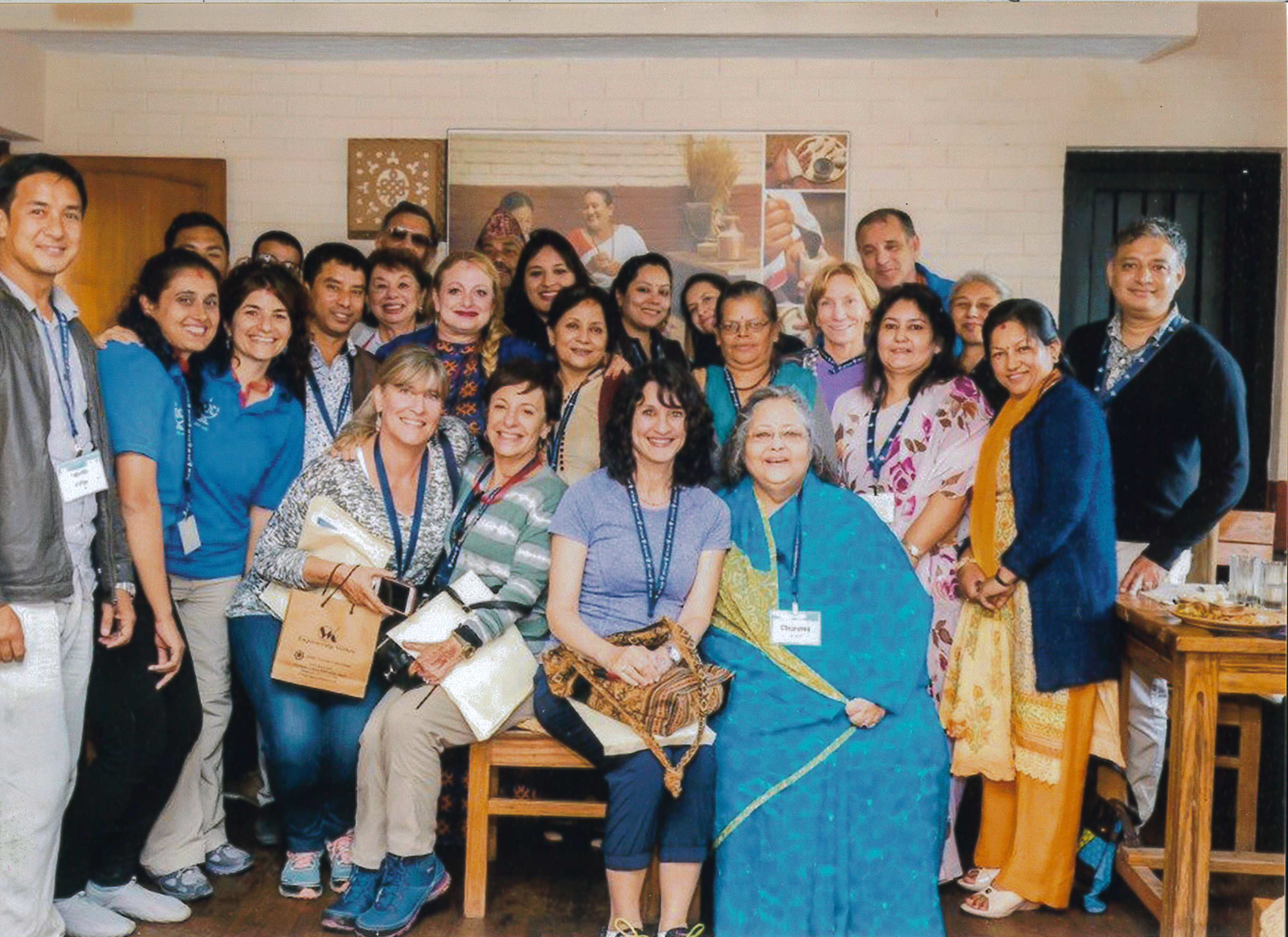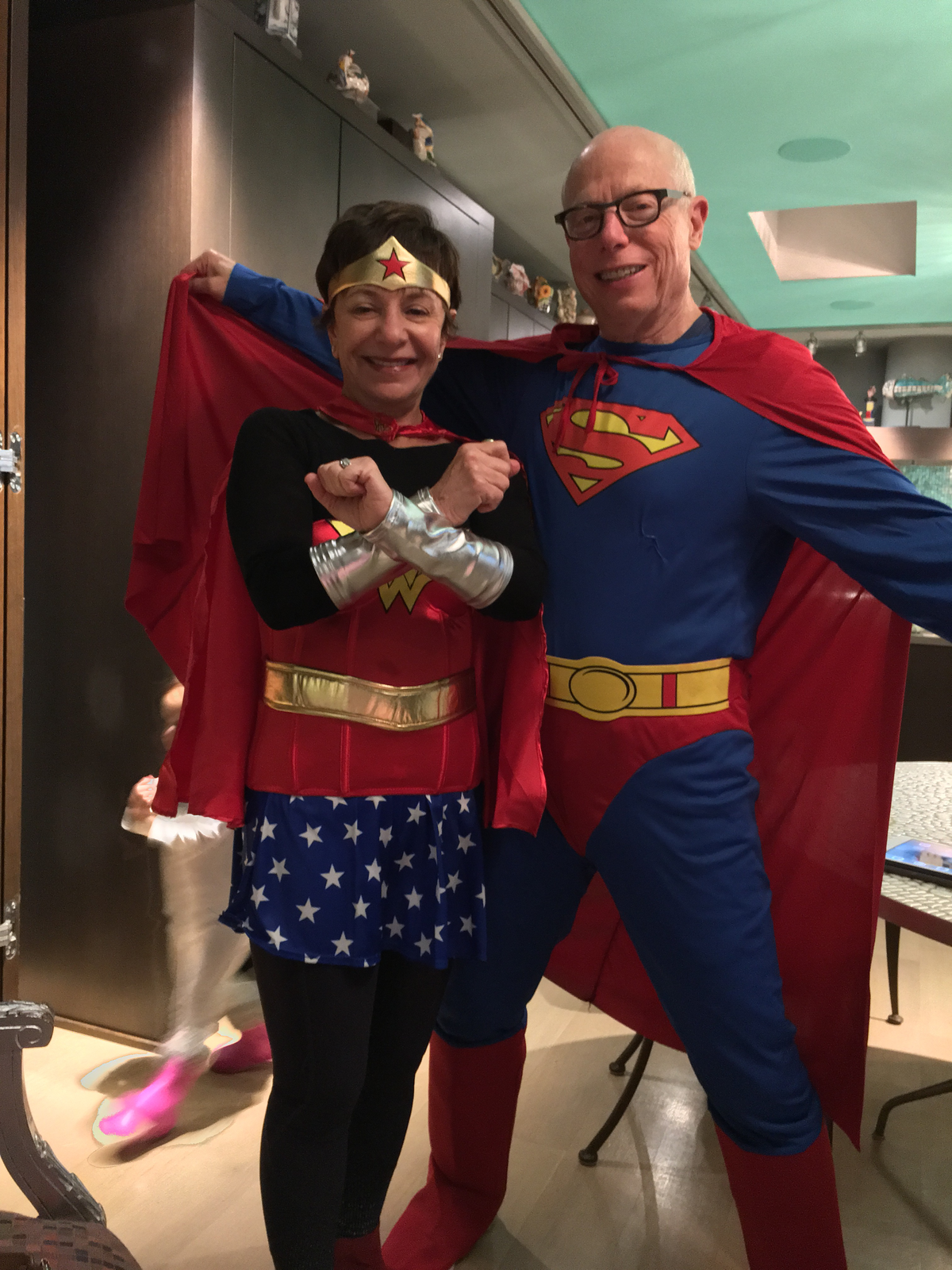I was born in Los Angeles. I am a boomer. My dad died when I was five, so my mom and I moved in with my grandparents, who were first generation. Everyone spoke Yiddish, and I grew up in a neighborhood that was completely Jewish. I went all through public school in LA and then I went to UC Berkeley Cal. I was a history major. I studied the Progressive Era, the ‘30s and World War II. I just loved it, it was so interesting. It’s a story. Then I came up to Seattle and went to graduate school.
Jewish values and political participation
I lived with my grandparents who came from a place where they couldn’t exercise a lot of freedom, a big day in our house were voting days, election days. It was something that I think they cherished and valued. The conversation around public affairs wasn't just talk in my house, my grandparents lived and acted with their rights as New Americans.
Lessons learned in the sixties
I went to Hamilton High School in the ’60s and I was lucky to have incredible teachers. One of those teachers was a woman named Blanche Bettington who taught us American history and government. She passed away at a very old age, but she was very celebrated at Hamilton. I also had friends who were very involved with the Young Democrats, and I got involved when I was a junior. My congress person was Henry Waxman, who just retired. And my close friend’s brother, Howard Berman, a former U.S. Representative who also recently retired. The importance of politics and my civic duty that my grandparents instilled in me continued to develop in high school. Then my mother sent me to the Conference of Christians and Jews camp. It was the beginning of the Freedom Riders in the South, and they were beginning to talk about desegregating LA schools; that was a really big moment in my life and in our collective history.
After college, I came to Seattle for graduate school, and I didn’t know anybody. I had been with Jews all my life, yet Seattle didn't seem to have any Jews. I felt like “Oh my G-d, I don’t have a community.” So, I knocked on the door of Temple de Hirsch Sinai, and a woman hired me to work in their Sunday School. I didn’t know what I was doing. But I found a community and I really liked it. I completed a year or two of my Master’s and I went to Europe. I didn’t know what I wanted to do. After returning from Europe, I worked in New York for a year and I worked in Boston for a year. I decided to come back to Seattle and finish my Masters. Then I worked at the JCC for a woman named Eunice Porte, who was unbelievable and helped me in continuing to develop my sense of Jewish identity. At the JCC, I started off working in after school programs and eventually taught preschool. During this time I met my husband, Stan Rosen. After we got married, I worked at Nordstrom selling lingerie, which was probably the start of my career in solicitation. Once we had kids, I worked in and out of preschools.
I was always attracted to volunteering, and I stayed involved with the JCC because my kids went there for preschool. I found it fulfilling. Eventually, a community member named Mel Leibman said, “Why don’t you come on over and do something at the Federation?” This was the beginning of my involvement with Women's Campaign. I said, “I won’t want to do it if it means cutting fruit and planning parties.” He said no, we won’t be cutting fruit. Mel and Merrily Laytner – she was in charge of the women’s campaign at the Federation – they taught me how to solicit for money. They said to me: “You have this responsibility. It’s not just about cutting fruit. It’s about securing resources to make sure the community runs the way it needs to run and we take care of people who otherwise won’t be taken care of.” They got me involved with the National Young Leadership Cabinet, what was the old United Jewish Appeal Young Leadership Cabinet. That was really a changing point in my life.
Cabinet at that time was the brainchild of a person named Rabbi Herb Friedman, who was a Rabbi in the camps during the Second World War. He came back and saw people like my in-laws doing this work, but no one younger. He said we have to capture the imagination of people who are the recipients of peace and prosperity and really don’t understand what they need to do or their responsibility to their community. It was very Jewish-centric at that time. So, I went to my first retreat and I was blown away. There were women like me from all over the country, who spoke beautifully and were completely committed to the well-being of their Jewish communities. It was small - around 200 people. I developed some of my longest and dearest friendships from that organization. I learned how to solicit at a higher level, and moreover, it gave me the confidence to do the work that I’ve gone on to do. I traveled the world with them. I went to Poland just as Lech Wałęsa was coming to power and we had the opportunity to meet with him. In Israel, we met and had in-depth conversations with Shamir, Rabin, and Peres. Israel is a pretty informal country and you have access to a lot of the leaders. I was at the table with all of them and I later went on to chair Cabinet, which was fun. We opened the former Soviet Union, we brought the first mission there. In my term we took a thousand people to Israel from around the country. I was fortunate, and I felt that that experience gave me more than I can give anybody. And I felt that I had to come back and do the work at home.
After I finished Cabinet, I really was involved with the Federation. It was in the peak of Federation life. We were in the process of bringing the Refusniks and others out of the former Soviet Union to Israel. We also brought 15,000 Ethiopians to Israel during that time. That experience underscored my feeling that we don’t just have a responsibility for Jews that live in Seattle. We have a responsibility for Jews all over the world. Because we are the lucky ones; we could have just as easily turned left and been sent away to a death camp. My grandfather was able to leave Riga and smuggled himself into the United States. So, I really feel that deeply. When I finished my work with the Federation, I didn’t what I was going to do, and I was a little nervous because I had always been involved with Jewish communal life and I felt very obligated to do it. My children were getting older. And then my friend, the great Danny Bridge, said to me, “Why don’t you come over and work at Hillel?”
When I first started working with Hillel, it was a little house in the U District. We were trying to grow the campaign and Edgar Bronfman came in and we sponsored him. We had a very successful dinner with him. People really responded because he was a big supporter of the Hillel movement. I thought that college students needed to be supported and exposed to Jewish life. The Hillel students were involved in the dinner as well - they were responsible for serving and cleaning. It took them three days to clean up and do the dishes after Bronfman was there because they didn’t have the proper dishwashing equipment. I said, "Let’s go buy a new dishwasher." They said, "Why don’t we just remodel the kitchen?" We prepared some plans for remodeling the kitchen and they said "This isn’t going to work. Why don’t we just buy a new building?" So, we did this campaign, no real study, no feasibility, just very Hillel, "Let’s do this." Our goal was to do a $12-15,000,000 campaign and we did it! It practically killed us, but we did it. We built this fabulous building. We created a small endowment and more importantly we asked people who hadn’t given major gifts to consider really doing a larger gift. They did, and the rest is history. We have this beautiful Hillel building and a thriving organization, because it is true: if we build it they will come. They have been coming and the program is thriving.
The Family Matters Campaign and work with the JFS
After Hillel, I didn’t know what to do. My friend Merrily from old Federation days was advising Ken Weinberg and Judy Neuman. They were going out on a capital campaign. She said, "Come over, help us with the campaign." So, I went over and helped them with what has become the Family Matters Campaign. That first year there were three chairs: Judy Neuman, Howard Behar, and Jeannie Butler. I was doing major gifts and we all made major commitments and raised a lot of money. I always thought JFS is a good idea because it helps people who are vulnerable and that’s really the core of our Jewish responsibility. Ken left, and Rabbi Will Berkowitz, who was once the head of Hillel, and who worked with an organization called Repair the World, was recruited as the person who would follow.
I agreed to take over as president of the Jewish Family Services for Eric LeVine when his wife Suzi was recruited to become the ambassador to Switzerland. So, I got involved with JFS, and this is the end of my second and last year. I’m very sad to see it go. During my tenure there, we were faced with the boogeyman of Trump and how he had threatened all the people that we serve, both Jews and non-Jews. One of our core missions is refugee resettlement because we have been in that business for over one-hundred years as well with people around the world. Our board feels that it’s one of our responsibilities. Our main task is to stand up for these refugees, not only because it’s the right thing to do, but because we might be in that situation one day. So, we have been fighting that fight for over a year. We sued the Trump administration with the help of HIAS, Hebrew Immigrant Aid Society, and a couple of other organizations. We don’t know if we stopped anything, but we put a spoke in the wheel. So that has taken a lot of our energy. We’re expanding and trying to build our revenue base because we used to rely on institutional funders like United Way. That funding has gone down. We had to beef up our revenue stream. Our building, which we just paid off in February, we own that free and clear. We decided we needed to do some other income-generating things. We were offered to buy a piece of property across the street, so we did that and we’re trying to develop it and sell it.
Disaster relief and other projects with the JDC
My thinking has evolved over my years in volunteer life, where I used to think our most important thing was to save the Jewish community. I still think it’s important, don’t get me wrong. But I do think that we are tapped on the shoulder, we are the chosen people because it’s our job not just to help Jews, but non-Jews. My work over the last couple of years has reflected that, both at the JFS and the JDC. The JDC is the American Jewish Joint Distribution Committee. Some people call it the Joint. It has been around for well over 100 years. It started in response to the First World War to help starving Jews in what is now Russia with poverty and it has been working in Jewish communities around the world ever since. I was really involved with that organization and still am very involved. I was chair of the committee to do work with our non-Jewish community members. JDC does a lot of disaster relief. We worked in Haiti and in Mexico. Where there are Jews, we work in the Jewish community to help everyone. We worked in Ecuador and Mexico with the Jewish communities. But in places like Nepal, we didn’t. We accessed help from USAID, Clinton, Bush. Our newest project is really cool. We are partnering with the Israeli government, who wants a foothold in Africa in terms of trade and relationships and better profile. We’re doing something called Tikkun Olam Ventures, TOV we call it. I just got back from Ethiopia. We use Israeli technology, like drip irrigation, hybrid seeds and fertilization. We worked with some philanthropists who’ve given to JDC and we started with seven farms, because don’t forget, Ethiopia like other countries in Africa, is experiencing a really horrible drought. Ethiopia is lucky enough to have very fertile land, but a lot of farmers only get one yield out of their soil. Hopefully with us, they’ll get three to four. They’re growing tomatoes, onions and peppers, and we’re going to help them bring it to market, not just to feel their communities but to hopefully export. It is giving loans to them, so they can reinvest in their property. It’s microlending, with the help of the Israeli government and the help of certain philanthropists.
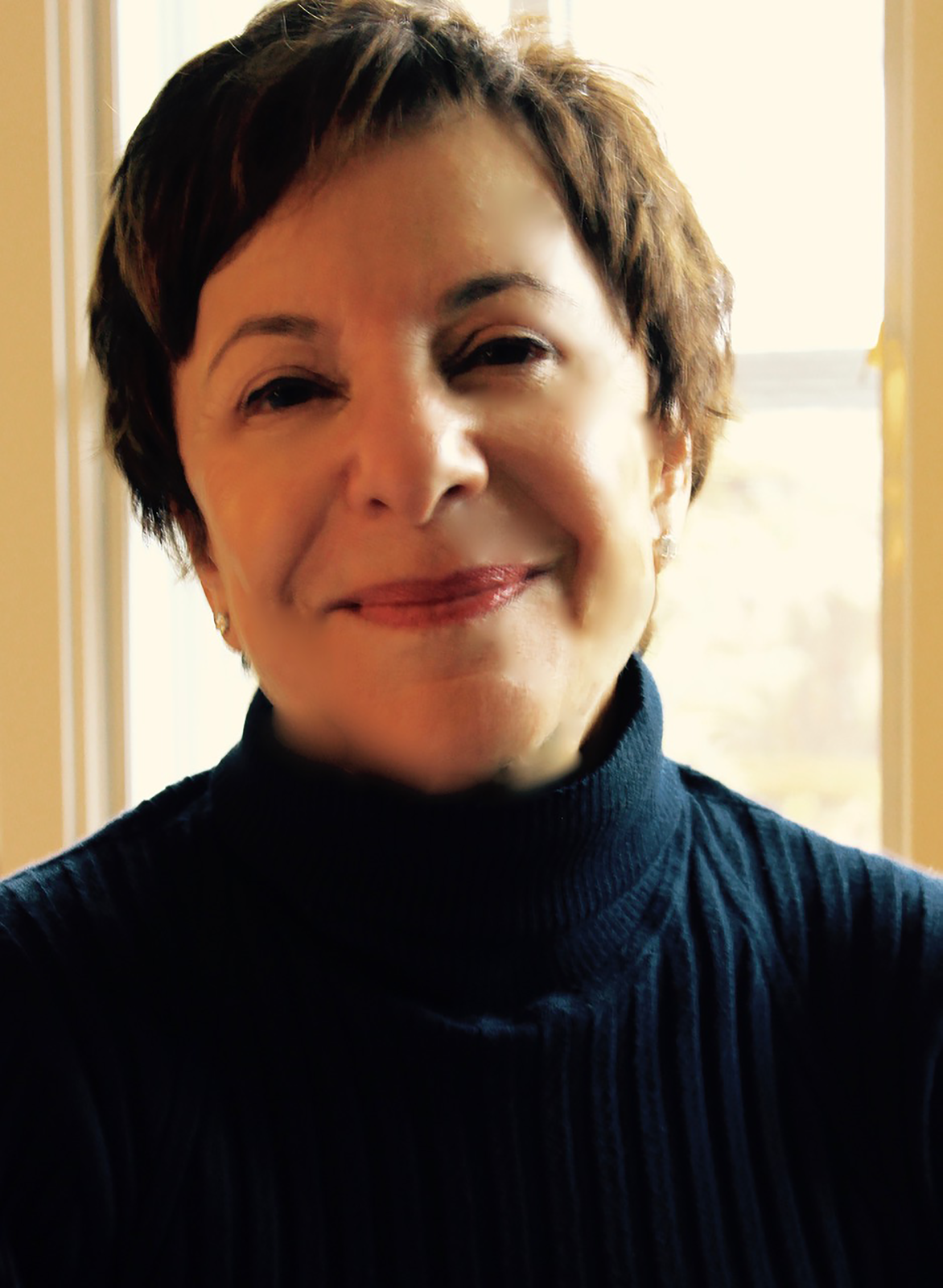
![Michele and two of her three children, Mimi and Jack [Leslie not pictured], during Chanukah.](https://cdn.firespring.com/images/4db50fbf-9cac-4ea9-85a6-ee1c0d695ed1.)
